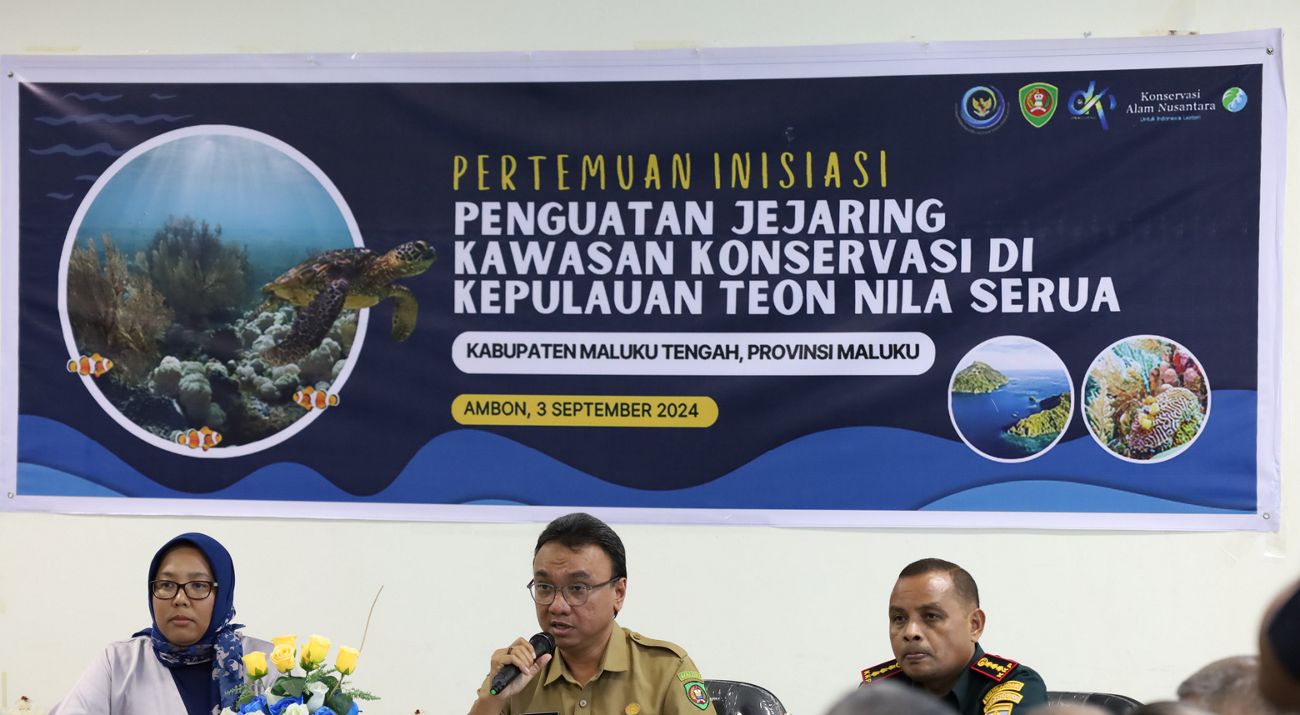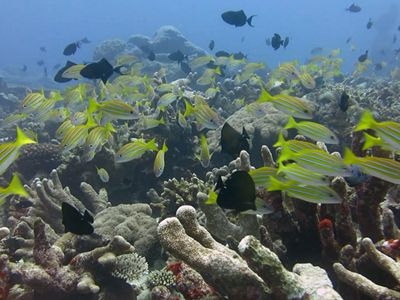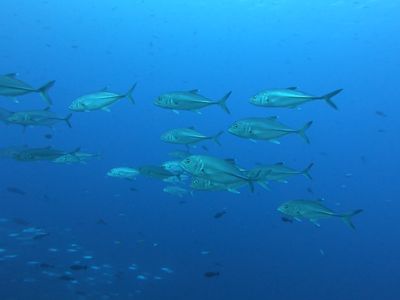DKP Maluku Province and YKAN Collaborate on Marine Conservation Area Management in Teon Nila Serua Archipelago
Media Contacts
-
Adia Puja Pradana
Communications Specialist Ocean Program YKAN
Email: adia.pradana@ykan.or.id
The Marine and Fisheries Office (DKP) of Maluku Province, together with Yayasan Konservasi Alam Nusantara (YKAN), will assist in managing conservation areas in the waters of the Teon Nila Serua Archipelago and its surrounding waters. This aims to strengthen and protect marine biodiversity and ensure the sustainability of fishery resources in Maluku Province. The DKP Maluku and YKAN collaboration plan was agreed upon through an initiation meeting held in Ambon on September 3, 2024.
As part of the world's coral triangle, the Banda Sea region, which includes the Teon Nila Serua waters, is Indonesia's second priority area for conservation area development after the Bird's Head Seascape. Due to its high biodiversity, this marine area is a significant contributor to Indonesia's fishery production. The Banda Sea is also part of the Fishery Management Area (WPP) 714.
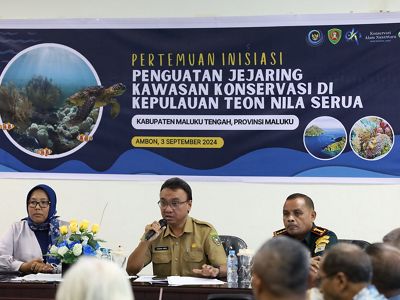
"This area contributes approximately 10% to Indonesia's total fishery production, with major commodities including pelagic fish such as skipjack, flying fish, tuna, scad, and mackerel. According to fishery production data from 2019-2022, regions with significant fishery production in this province are Central Maluku Regency (39%) and Southeast Maluku Regency (29%)," explained Erawan Asikin, Head of the DKP Maluku Province.
However, climate change is impacting the increase in Earth's temperature. According to data from the National Oceanic and Atmospheric Administration (NOAA), in 2023, Earth's temperature reached its warmest condition since 1850, with a rise of 1.18°C above the 1.5°C threshold recommended by the Intergovernmental Panel on Climate Change (IPCC) and the 2015 Paris Agreement. This affects coral reef health, a crucial component of high-productivity marine ecosystems.
Therefore, to strengthen and protect biodiversity in the Teon Nila Serua waters from the impacts of climate change, the Maluku Provincial Government is actively enhancing the management of marine and fishery resources through the development and effective management of Conservation Areas (KK). This aligns with sustainable development programs in the marine and fishery sector and the Maluku RPJMD 2025-2029.
"By the end of 2023, Maluku Province has allocated 30 Conservation Areas, with six areas under the Central Government's authority, while the rest are under provincial authority. All Conservation Areas in Maluku Province cover approximately 4.7 million hectares across ten regencies/cities in Maluku. These areas are mainly distributed in Southwest Maluku Regency (35%) and Central Maluku Regency (22%)," continued Erawan.
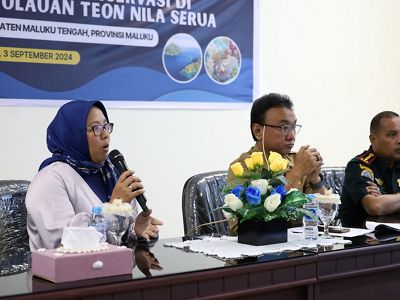
To ensure the sustainability of marine and fishery resources and strengthen marine biodiversity in Maluku Province, collaboration among various stakeholders, including the government, agencies, institutions, and communities, is needed. "We welcome this collaboration plan as it can have a positive impact on the health of the Banda Sea waters and benefit coastal communities, especially those in Teon Nila Serua," said Nus Ukru, a member of the Teon Nila Serua Family Association (IKB TNS) of Maluku Province.
Community-Based Marine Conservation
Community involvement is one strategy for managing marine conservation areas in the Teon Nila Serua region. This involvement includes developing sustainable financing models for marine conservation areas, facilitating fishing rights for small-scale fisheries within conservation areas, and supporting the development of marine conservation management units. Other aspects of community-based marine conservation include human rights, gender issues, environmental concerns, social guarantees, and improving local access to capital, markets, and technical capacities for sustainable livelihoods.
"Through this program, sustainable fishery management will be enhanced with community involvement, from data collection to planning and implementation," said Nus Ukru.
Additionally, developing marine conservation areas can protect fishery management and ensure the protection of essential areas for communities. This can enhance community capacity in developing the blue economy, emphasizing the roles of local communities, women, and youth.
"As a government partner, YKAN, through its Marine Program, will support strengthening integrated conservation area management in the Teon Nila Serua region. This means we are targeting environmental sustainability and the livelihoods and well-being of surrounding coastal communities, especially those dependent on marine resources," concluded Muhammad Ilman, Director of YKAN's Marine Program.
Yayasan Konservasi Alam Nusantara (YKAN) is a scientific-based non-profit organization that has been present in Indonesia since 2014. With the mission of protecting lands and waters as life support systems, we provide innovative solutions to realize the harmony of nature and humans through effective natural resource management, prioritizing a non-confrontational approach, and building a network of partnerships with all stakeholders for a sustainable Indonesia. For more information, visit ykan.or.id.


